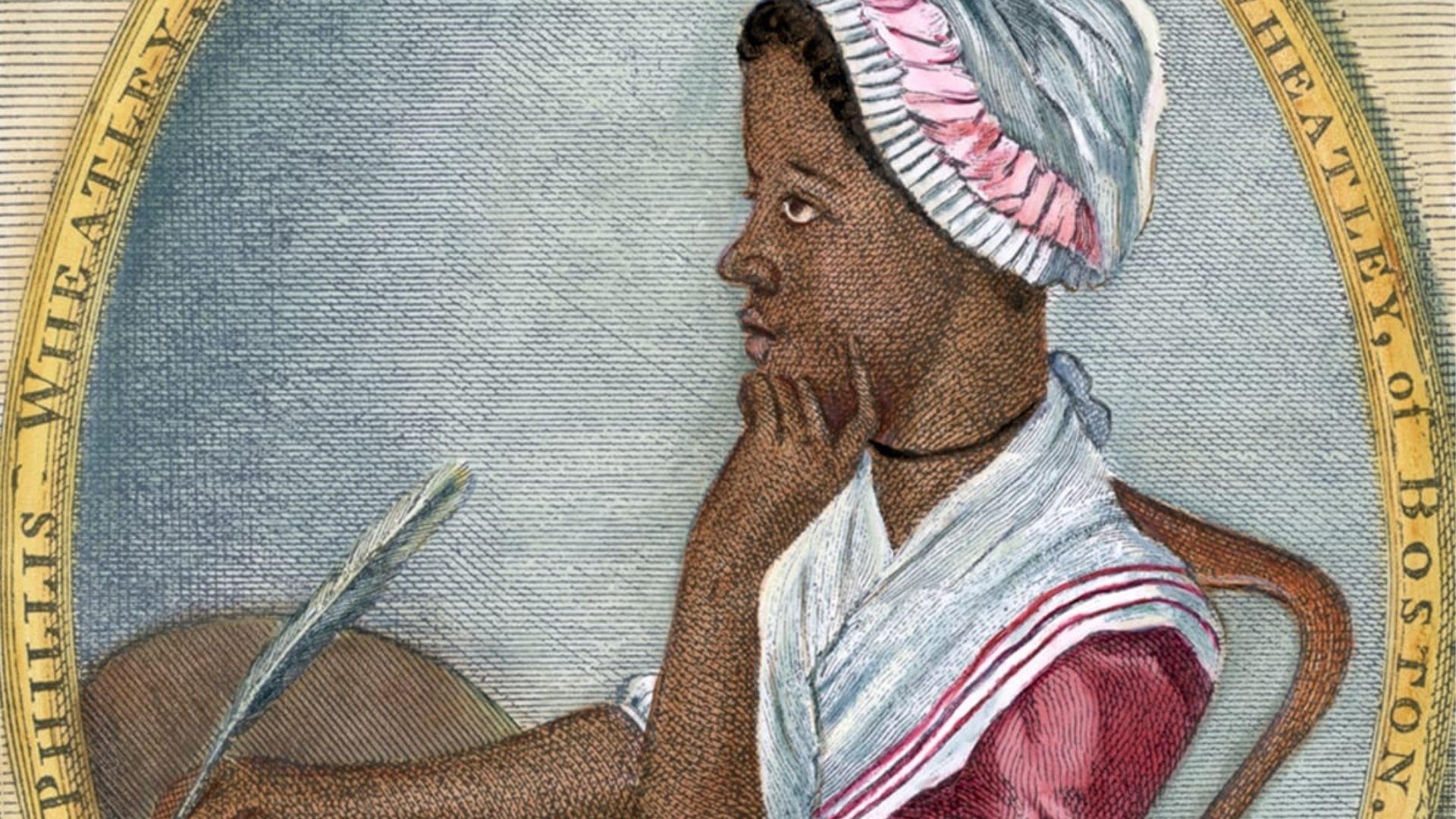On Being Brought From Africa To America Poem by Phillis Wheatley
On Being Brought From Africa To America
'Twas mercy brought me from my Pagan land,
Taught my benighted soul to understand
That there's a God, that there's a Saviour too:
Once I redemption neither sought nor knew.
Some view our sable race with scornful eye,
"Their colour is a diabolic die."
Remember, Christians, Negro's, black as Cain,
May be refin'd, and join th' angelic train.
There's a lot of well-written comments on this poem printed below. Sarcasm could definitely be a key to this poem, but I would toss into the discussion that there is a history of the slaves embracing Christianity and there was nothing sarcastic in their belief. They found comfort in Jesus Christ and in the promise of happiness in heaven. Being the rare educated slave, she may have mocked the beliefs of her fellows, the inferior field slaves. I hate to think that. Sometimes high education can lead to arrogance but I don't want to see that trait in the poet. Besides, I sense a sincerity in her. She could very well be thankful that she was brought from a country that did not know Christianity to a country where she learned about the religion and was given the high education she would never have received in Africa. She seems to have been well treated and valued so perhaps she felt she was better off than she would have been in Africa where she may have lived in a slavery to African cultural beliefs that women were cattle. Just a thought. I find myself swaying back and forth on the issue of sarcasm versus sincerity.
Whoops, I see that you addressed squarely the point that I touched on in my later comment.
After reading the earlier comments and contrasting them with what you say, I wonder if it's possible she was being both sincere AND ironical. An example of such a mixture would be the poetry of Sherman Alexie. He is a Catholic, and he wrote fondly about a Catholic priest who had served selflessly on the Cour-de-Aleine reservation. Or Shusaku Endo's meditation on how Christianity entered Asia in his LIFE OF JESUS.
Without the poems of Phillis Wheatley, we wouldn't have known about this situation in that era (time)
Imagine in what aloving atmosphere she was brought up, and educated. Unbelievable for the North American publishers, they could not believe that the poems were written by herself.
Her first poembook was published in England, she went to England accompanied by her master's son. Her surname is tht of her master.
She was namely a slave, no white men in publishing business could believe she had written her own poems, reading and writing taught by her master
Most deserving as The Classic Poem Of The Day, great choice by Poem Hunter and Team. Such a fascinating poetess, who wrote her oen poems in a era where no North American publishers could believe
This poem has not been translated into any other language yet.
I would like to translate this poem
Of course this poem is sarcastic! Even without the italics, it is hard not to understand it. Those previous comments show that slavery still lacks understanding and interest from new generations, or that intolerance prevails so much so that it is still believed that African American felt thanksful from having been kidnapped from cultures as rich or even richer than what was 17th,18th or 19Th America. That torture and rapes have been forgotten and their oppressors thanked for having brought them the enlightment of Christianism and American values. Seems that the Myth of the Old South is still alive, and it saddens me to hear such comments, even well meant. Although any comment has a right to be ewpressed, obviously, and we are all here to make mistakes and learn, it still shocks me a bit... This poem reminds me of a text written by Montesquieu: De l'Esclavage des Negres... Bonne lecture!
This poem is never sarcastic. Please read this in a correct way.